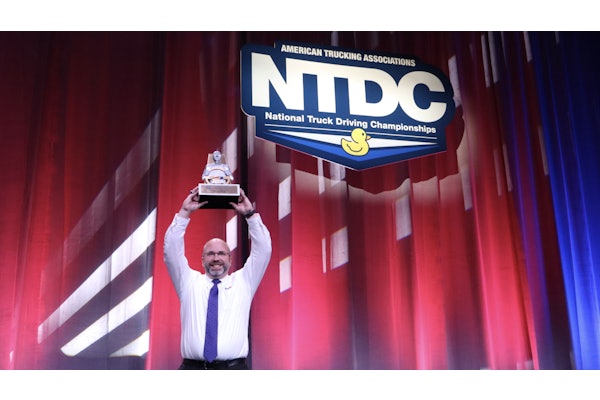
It appears federal regulators are once again picking up the cudgels on a controversial proposal that has languished for the past several years: requiring speed limiters on commercial motor vehicles.
The Federal Motor Carrier Safety Administration Wednesday issued a notice of intent it was going forward with a rulemaking proposed in September of 2016 by the agency and the National Highway Traffic Safety Administration.
The rule says the proposed rulemaking "will propose that motor carriers operating commercial motor vehicles in interstate commerce with a gross vehicle weight rating or gross vehicle weight of 26,001 pounds or more that are equipped with an electronic engine control unit capable of governing the maximum speed be required to limit the CMV to a speed to be determined by the rulemaking and to maintain that ECU setting for the service life of the vehicle."
However, the notice issued Wednesday did not include any proposed speeds. The proposed rulemaking in 2016 sought comments on maximum speeds of 60, 65 and 68 miles per hour.
The FMCSA is seeking public comment on the proposed rulemaking.
Trucking organizations have reacted to the speed limiter moved by FMCSA.
The American Trucking Associations issued a statement Wednesday from its President and CEO Chris Spear.
“ATA is pleased that the Federal Motor Carrier Safety Administration is pursuing a constructive, data-driven approach to the issue of truck speed limiters in its latest proposal.
“We intend to thoroughly review FMCSA’s proposal, and we look forward to working with the agency to shape a final rule that is consistent with our policy supporting the use of speed limiters in conjunction with numerous other safety technologies.”
The Owner-Operator Independent Drivers Association continues to oppose mandated speed limiters.
The Truckload Carriers Association today sent a letter to members on the topic. In the letter, Dave Heller, TCA's vice president of government affairs said:
"Late yesterday afternoon, FMCSA announced a Notice of Intent (NOI) to proceed with a rulemaking on speed limiters for commercial motor vehicles. The agency is requesting industry and other stakeholders submit comments to a set of questions, which it will use to prepare a supplemental notice of proposed rulemaking (SNPRM). The notice does not define a maximum speed setting, which will ultimately be established in either the SNPRM or eventual Final Rule.
The NOI is a follow up to a Notice of Proposed Rulemaking issued joint by NHTSA and FMCSA in September of 2016 and is reflective of the next step that regulations follow in the rulemaking process. TCA staff will review the notice and consult with our Regulatory Policy Committee in order to submit comments by the deadline, set for 30 days after publication in the Federal Register. We look forward to working with our members and FMCSA leadership to help craft a final rule that reflects TCA's policy on speed limiters."
Slightly less than a year ago, a bill resurfaced in the House of Representatives that would address the issue f truck speed.
The Cullum Owings Large Truck Safe Operating Speed Act was reintroduced by Rep. Lucy McBath (D-Georgia) and Rep. John Katko (R-New York). Their original bill was introduced in 2019 but went nowhere.
If passed and signed into law, that law would have required all new commercial motor vehicles to be equipped with speed limiters and require existing speed-limiting technologies already installed in commercial motor vehicles manufactured after 1992 to be used while in operation. The bill, named for a 22-year-old Atlanta resident who died in a collision in 2002, requires the maximum safe operating speed of commercial motor vehicles not exceed 65 miles per hour, or 70 miles per hour with certain safety technologies -- adaptive cruise control system and an automatic emergency braking system -- installed.












